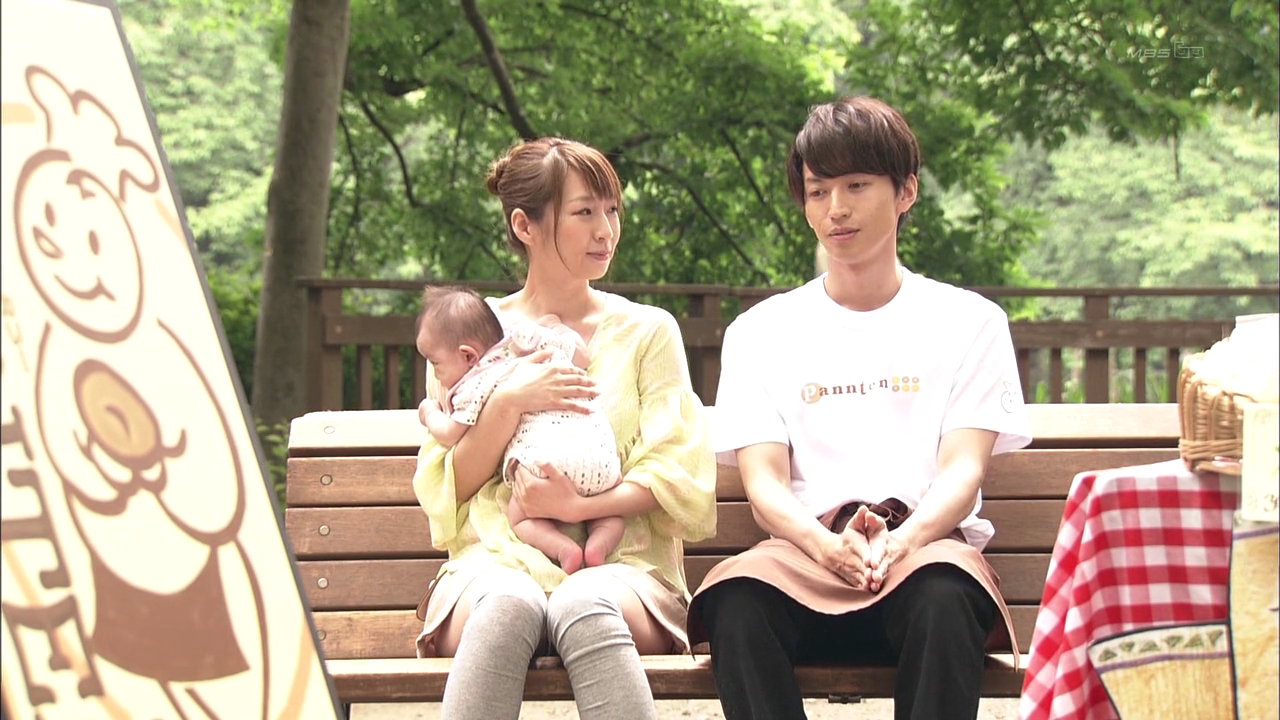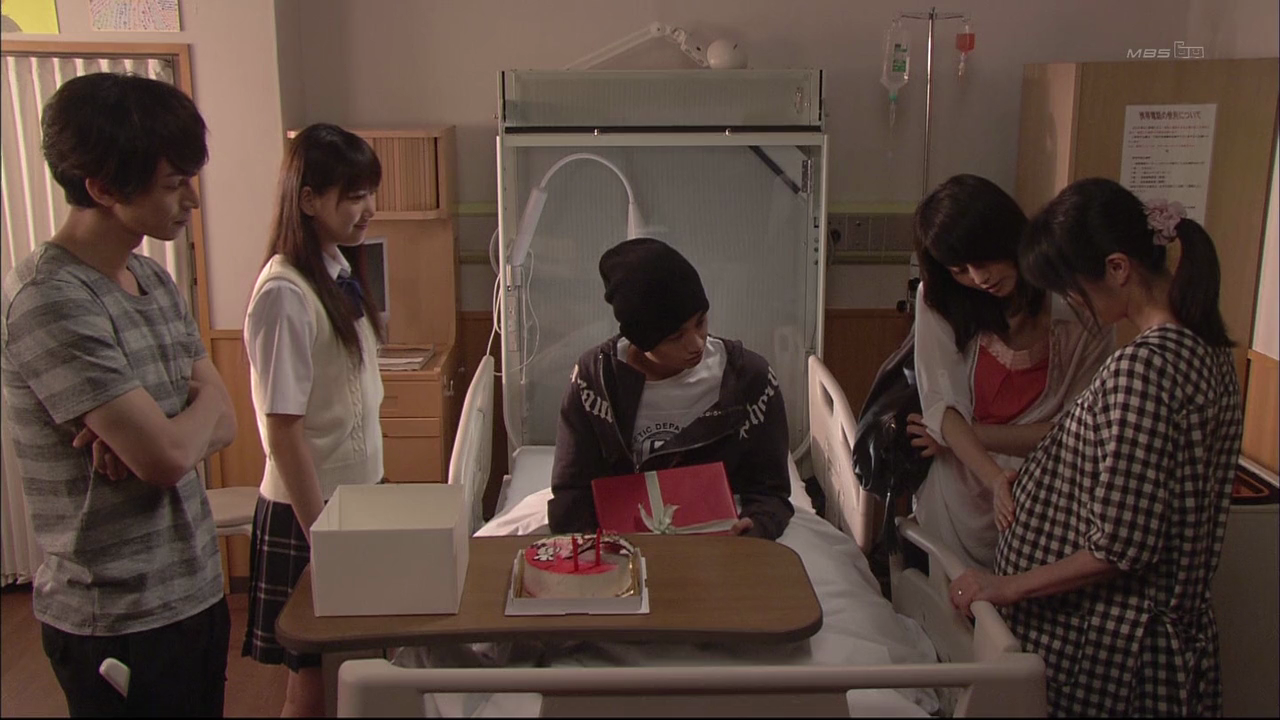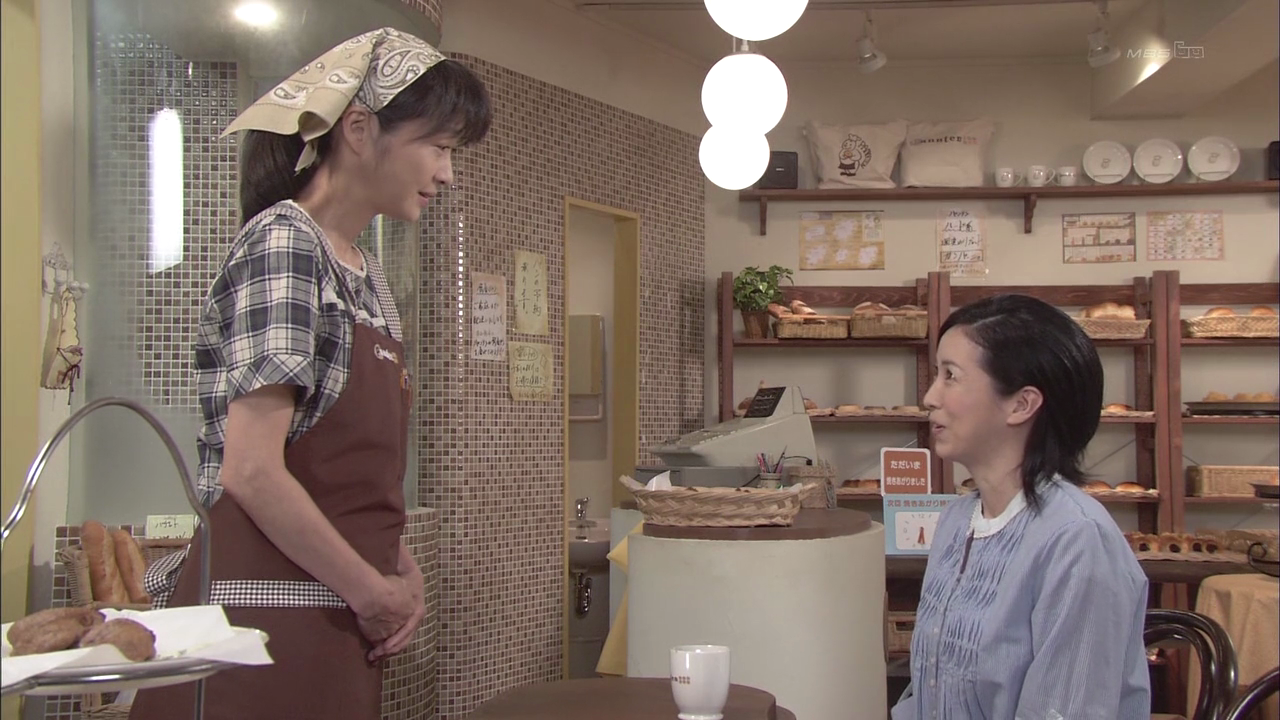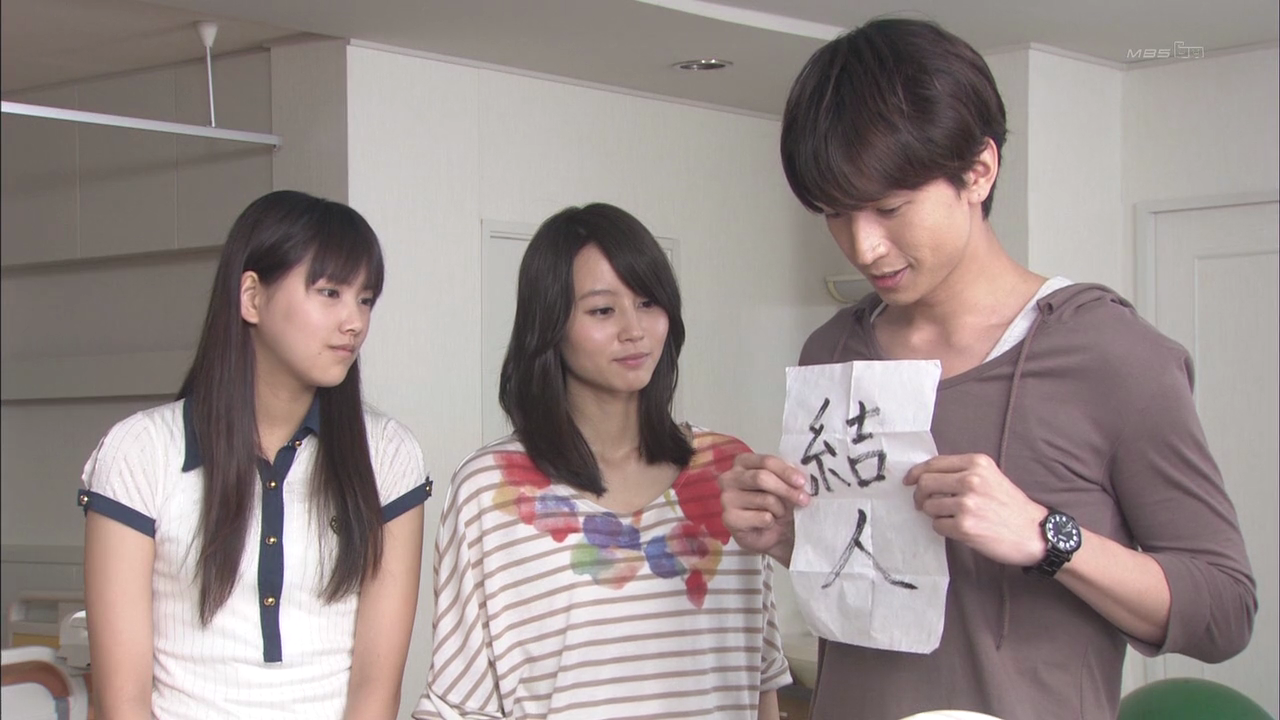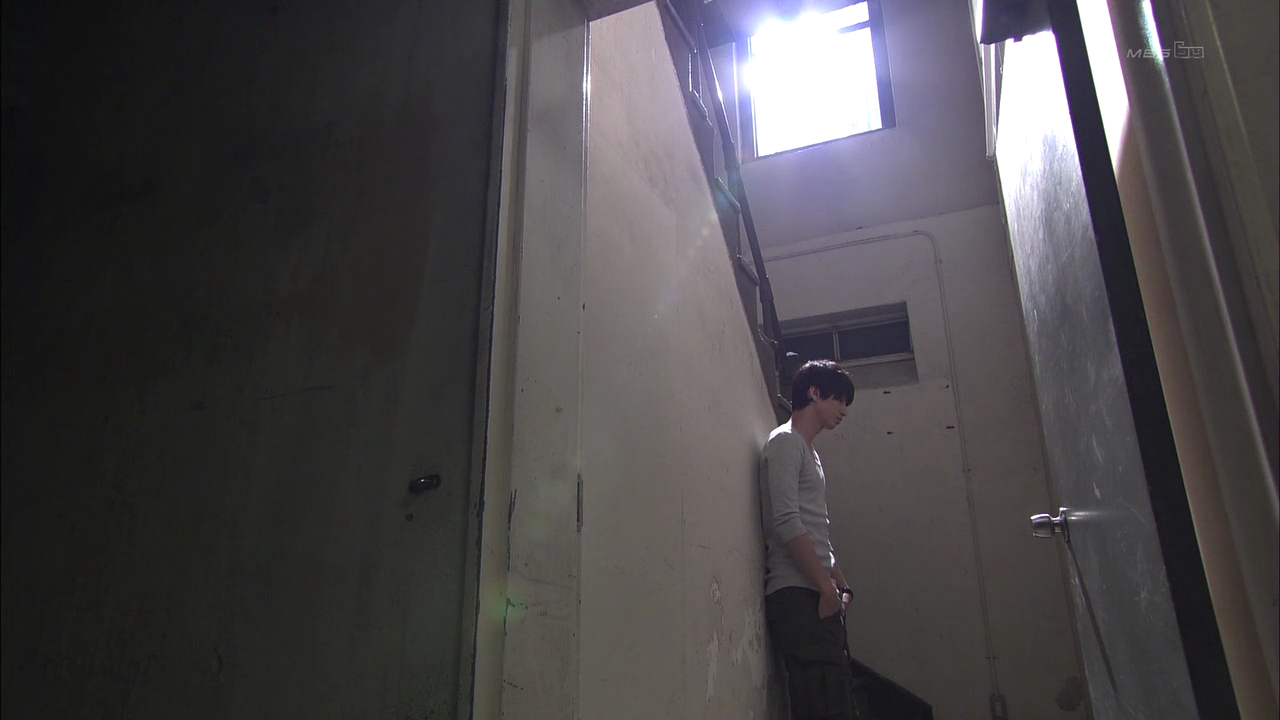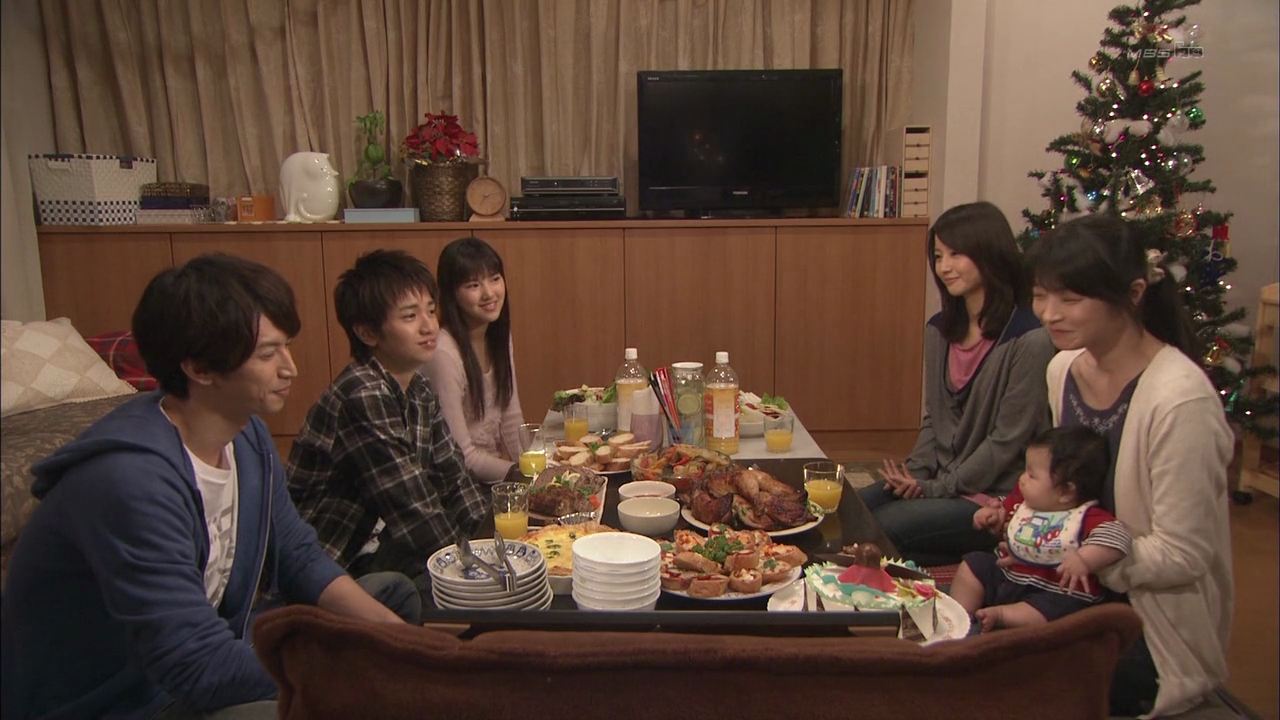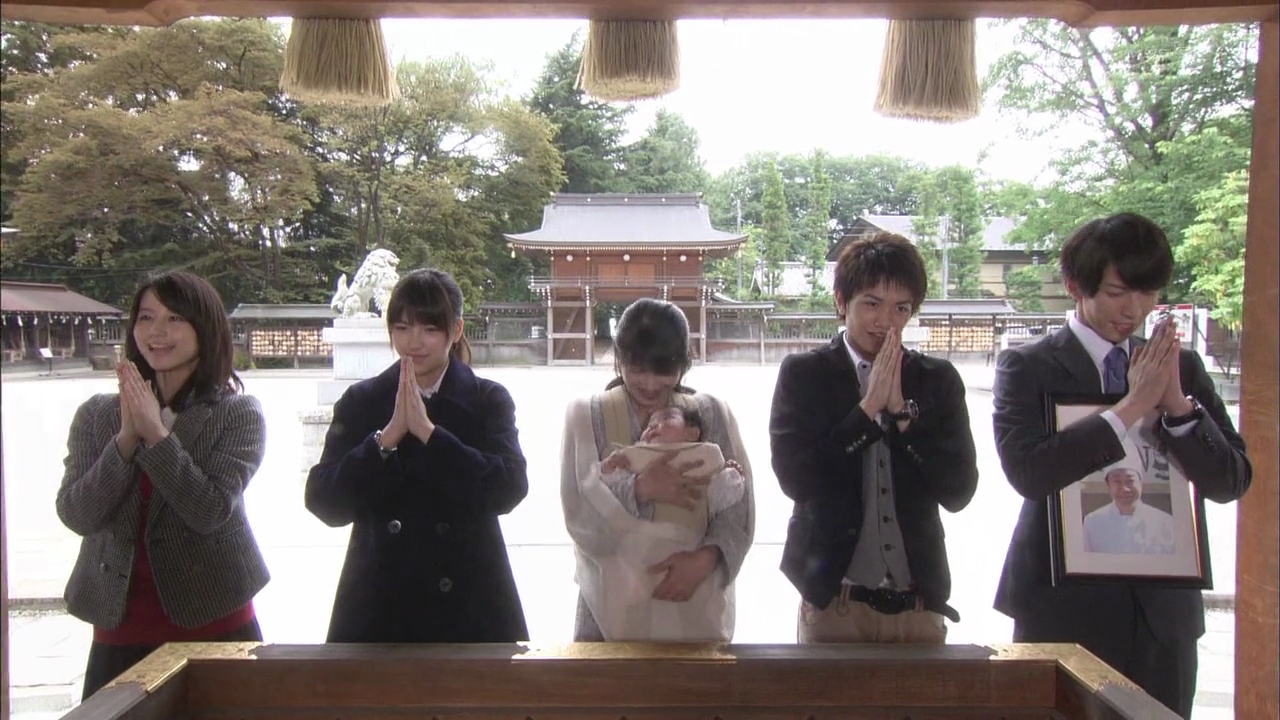Umareru : Final Thoughts
And so a humble story comes to a close. Umareru ended up being something I highly enjoyed watching in the end. With compelling characters, beautiful cinematography, a gorgeous score, and a wonderful story… Umareru ended up being a drama that managed to impress me thoroughly. Though, I will admit, I did have very low expectations coming in to it due to all the negative comments about the drama.
Umareru continues the story of a struggling family unable to come to terms with their unavoidable situation. It’s done tastefully, unlike a certain drama, in which the family grows and learns from their issues. They realize that they need to accept what’s wrong with them, rather than what’s wrong with everyone else, and try to fix those problems. Whether it be Miko’s self esteem issues at school, Taichi’s problems with his adoption, Manami letting go of her fears, or Kouji’s illness… each character stumbles, falls, but manages to get back up again as a new person. I thoroughly enjoyed that.
There is not to say that there are no slow points in this drama. There are stories and segments in the story that do drag the story down a bit, such as Manami’s research findings which can come off more like an infomercial than anything significant to the story and Taichi’s story, which at times got slightly out of hand. While it is understandable that he is angry at his family for withholding that information from him, it still seemed to stretch well beyond realistic levels when he ended up working for the loan shark that has his real father coming to him in the first place. I mean, later on they do explain that he’s only doing this to make sure they don’t harass his family, but it just seems like ridiculous brooding and ‘why me’ crying at times.
He could have easily went to the police and resolved the issue since his father legally has no ties to him, but whatever. It was for the sake of drama and Umareru did stand up to its obligation when it comes to the unreasonable drama troupe.
Ohkura’s acting during the entire arc seemed to slightly improve, though, like I said in the last review; all he did was brood. He’s not a strong actor, he can pull off comedy and light hearted characters, but anything serious and you’re doomed for a flat performance. I’m still baffled on why he continues to get heavy characters that require some strong emotional performance.
Whenever he was delivered some heavy hitting news, like his mom being pregnant or his brother becoming sick the extent of his face was pretty much what I capped above. In his titular moment, you can see he puts effort in making them tears happen. And much to my surprise, they do happen… it took some struggle, but it happened. He’s definitely learning and growing with the more roles he gets but I’m still pretty firm on the notion that Ohkura is not a good actor and is incapable of emotion.
But where Ohkura lacked, actors like Nishimura Tomomi made up for it. Nishimura, who played Aiko’s best friend, Rumi was a side character with a compelling story. She was unable to have children and it was starting to affect her emotionally and, almost, mentally. When you look at side characters in a lot of Japanese dramas, you don’t pay them any mind. They’re simply there to move the main character along on his journey, but it ended up being a reversal here. Aiko helped her friend out, found her another alternative to becoming a mother, and that final scene for her where she sees her baby for the first time is so powerful of a moment you feel the relief that she is feeling at that very moment.
If there’s one thing to mention about this drama is how well knit the cast is. You’ll get dramas where you’ll watch a cast and don’t see a close bond and then you get a cast and see a very great ensemble that can sell to you that they’ve been friends for years when in reality they’ve only known each other for a few weeks. Tanaka Misako really captures a loving mother and her shinning moment is when she finds out about Kouji’s fate. When she screams that she doesn’t care about her well being as long as Kouji can be saved, you get chills. Much like Inu wo Kau to Iu Koto, this cast seems like a real family and they react with each other so naturally you just flow with them. Even Horikita and Ohkura warm up to each by the show’s end.

In this one scene, the lighting reflects the mood of each character. The struggle between life and death, despair in keeping a separated family together, and the feeling of abandonment
The cinematography, again, was absolutely gorgeous. The lighting was done tastefully, sometimes symbolic and sometimes to set a mood.
With all the negative complaints I’ve read about this drama, one of them is true; Umareru is slow. If you want a fast paced drama, Umareru is not that drama. Its a slice of life about a family. That necessarily does not make the drama bad but for some its the straw that breaks the camel’s back. My thought on slow paced dramas is that everything things to happen within reason not because it must happen but because it is the due course of things. Umareru succeeded with that.
I like this drama. I don’t like it as much as I did Inu wo Kau to iu Koto but I thought that it was an excellent drama. A great, well written, slice of life that seems to capture your heart. It leaves you with this fuzzy feeling inside… Family is important and family, when united, can conquer anything. If you’re into slice of life dramas then give it a chance.
